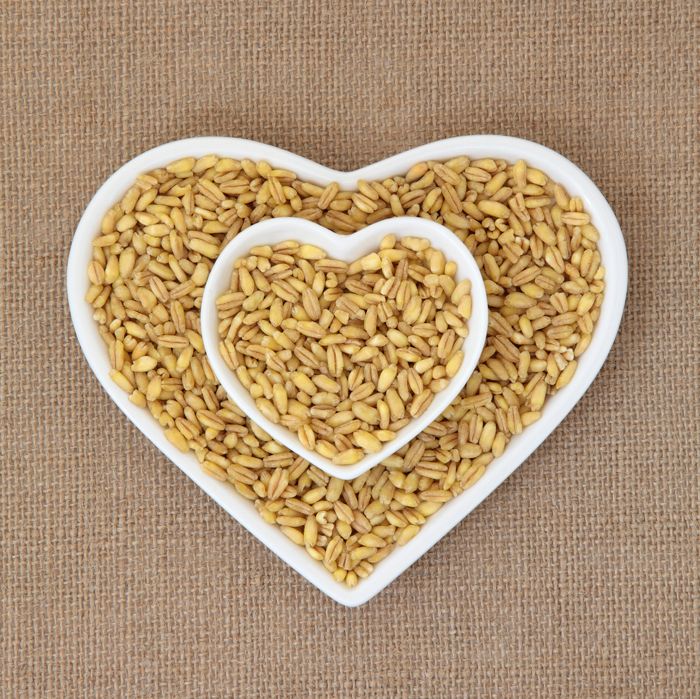Can an Ancient Grain Reduce Cardiovascular Risk in Patients?
Italian researchers studied the cardio benefits of Kamut, a commercial-branded khorasan wheat ingredient.

The Mediterranean Diet-a diet rich in fruits and vegetables, whole grains, legumes, nuts, and olive oil-has been touted to help reduce the risk of heart disease. Now, Italian researchers have studied the benefits of Kamut, a commercial-branded khorasan wheat ingredient, in patients suffering from acute coronary syndrome (ACS). ACS is a large contributor to heart disease and is associated with risk of atherosclerotic plaque rupture and heart attack.
Published in the journal Nutrients, the randomized, double-blind, crossover trial compared the effects of khorasan wheat versus modern wheat (the control) on 22 patients already taking pharmaceuticals for ACS treatment, most of who had already suffered from at least one heart attack.
The crossover study comprised two eight-week intervention phases with an eight-week washout period in between. During each intervention arm, subjects were fed pasta, bread, biscuits, and crackers made either with organic semi-whole khorasan wheat (Triticum turgidum ssp. turanicum) or organic semi-whole control wheat. Patients were not allowed to consume other wheat products during the intervention phases. Blood was analyzed at the beginning and end of each intervention phase.
Researchers determined that khorasan wheat intake, compared to control, resulted in significant differences in total cholesterol (-6.8%), LDL cholesterol (-8.1%), glucose levels (-8.0%), and insulin levels (-24.6%). They also determined a significant reduction in reactive oxygen species and inflammatory marketer TNF-alpha, as well as a blood increase in magnesium.
“Because of all the drugs that the participants were taking, we didn’t really expect any measurable improvement in symptoms with such a small change in diet,” said lead researcher Anne Whittaker, PhD, in a press release. “We certainly were surprised by the results.”
This is the second human study the researchers have conducted on khorasan wheat and cardiovascular risk factors. The first study also showed benefits due to intake, with improved circulatory, metabolic, lipid, antioxidant, and inflammatory risk factors, which may be linked to developing heart disease. This more recent trial showed even stronger results, researchers said.
Khorasan wheat’s benefits may come from its significantly higher antioxidant content compared to that of modern wheat flour. Also, the scientists noted, “Although the present study was conducted on organic khorasan wheat, it raises an interesting question as to whether similar benefits may be attained from other ancient grains, as well as older varieties of T. durum and T. aestivum as preliminary studies have suggested.”
Kamut Enterprise of Europe, maker of Kamut khorasan wheat, sponsored the study.
Jennifer Grebow
Editor-in-Chief
Nutritional Outlook magazine
jennifer.grebow@ubm.com
Photo © iStockphoto.com/marilyna








